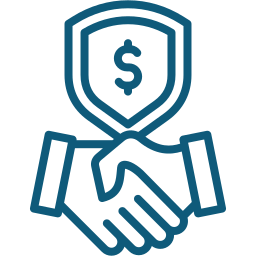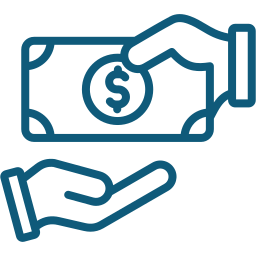We are processing your application, please wait for a moment.
![]() We Use 2048-bit SSL Technology to encrypt your data
We Use 2048-bit SSL Technology to encrypt your data








Quick Online Process
Only takes minutes

Fast Online Decision
Receive a decision in minutes

Same-Day Deposit
Up to $5,000 in your account in 24 hours*
Home | FAQs | Terms of Use | Rates & Fees | Disclaimer | Privacy Policy | Lending Policy | Contact
Navigating the World of Payday Lenders
Payday loans are short-term, high-interest loans designed to provide immediate cash to borrowers who may be facing financial emergencies. Typically, these loans are intended to cover unexpected expenses, such as medical bills, car repairs, or urgent household needs, until the borrower receives their next paycheck. The appeal of payday loans lies in their accessibility; they often require minimal documentation and can be obtained quickly, sometimes within a matter of hours.
However, this convenience comes at a steep price, as payday loans usually carry exorbitant interest rates that can lead to a cycle of debt if not managed properly. Borrowers should be aware that the average annual percentage rate (APR) for payday loans can exceed 400%, making them one of the most expensive forms of credit available. Moreover, the structure of payday loans is typically based on the borrower’s income.
When applying for a payday loan, the lender usually requires the borrower to provide proof of income and may ask for access to their bank account. The loan amount is often limited to a percentage of the borrower’s next paycheck, which means that while the loan may seem manageable at first glance, it can quickly become burdensome. If borrowers are unable to repay the loan by the due date, they may be forced to roll over the loan, incurring additional fees and interest charges.
This cycle can trap individuals in a financial quagmire, making it crucial for potential borrowers to fully understand the implications of taking out a payday loan before proceeding.
Finding a Reputable Payday Lender
Identifying Reputable Payday Lenders
When seeking a payday loan, it is essential to find a reputable lender to ensure that you are not falling prey to unscrupulous practices. A trustworthy payday lender should be transparent about their terms and conditions, including interest rates, fees, and repayment schedules. One effective way to identify reputable lenders is by conducting thorough research online.
Conducting Research and Due Diligence
Look for lenders who are licensed and regulated in your state, as this can provide an added layer of security. Additionally, reading customer reviews and testimonials can offer insights into the lender’s reliability and customer service quality. A lender with a solid reputation will often have positive feedback from previous borrowers, indicating that they operate ethically and responsibly.
Seeking Recommendations and Comparing Lenders
In addition to online research, consider reaching out to local consumer protection agencies or financial counseling services for recommendations on reputable payday lenders. These organizations often have valuable resources and can guide you toward lenders who adhere to fair lending practices. It is also wise to compare multiple lenders before making a decision. By obtaining quotes from various sources, you can better understand the market rates and terms available to you. This comparison process not only helps you find a reputable lender but also empowers you to make an informed choice that aligns with your financial situation.
Comparing Interest Rates and Fees
One of the most critical aspects of securing a payday loan is understanding and comparing interest rates and associated fees. Payday loans are notorious for their high-interest rates, which can vary significantly from one lender to another. When evaluating potential lenders, it is essential to look beyond just the nominal interest rate; consider the total cost of borrowing, including any additional fees that may apply.
Some lenders may charge origination fees, processing fees, or late payment penalties that can substantially increase the overall cost of the loan. By carefully reviewing these factors, borrowers can avoid unpleasant surprises when it comes time to repay their loans. To make an informed comparison, it is advisable to calculate the annual percentage rate (APR) for each loan offer you receive.
The APR provides a standardized way to assess the true cost of borrowing over a year, allowing you to compare different loans more effectively. Additionally, consider how long you will need to repay the loan and whether you can afford the monthly payments without straining your budget. A lower interest rate may seem appealing, but if the repayment terms are unfavorable or if there are hidden fees involved, it could lead to financial difficulties down the line.
Ultimately, taking the time to compare interest rates and fees will help you choose a payday loan that is both affordable and manageable.
Understanding the Repayment Terms
Understanding the repayment terms of a payday loan is crucial for avoiding potential pitfalls associated with borrowing. Typically, payday loans are structured to be repaid in full by the borrower’s next payday, which can range from two weeks to a month after taking out the loan. This short repayment period can create pressure on borrowers who may already be facing financial challenges.
It is essential to read the fine print of your loan agreement carefully and clarify any uncertainties with your lender before signing on the dotted line. Knowing exactly when payments are due and how much you will owe can help you plan your finances more effectively. Moreover, some lenders may offer flexible repayment options or allow borrowers to extend their repayment period for an additional fee.
While this may seem like a convenient solution for those struggling to meet their payment deadlines, it is important to recognize that extending a loan often leads to additional interest charges and fees. This can exacerbate an already challenging financial situation and potentially lead to a cycle of debt. Therefore, before agreeing to any repayment terms or extensions, borrowers should assess their ability to repay the loan on time and consider whether they have alternative options available.
Avoiding Predatory Lenders
The landscape of payday lending is fraught with predatory practices that can exploit vulnerable borrowers. Predatory lenders often target individuals who are in desperate need of cash and may employ deceptive tactics to lure them into unfavorable loan agreements. These lenders may advertise low-interest rates but fail to disclose hidden fees or unfavorable repayment terms until after the borrower has signed the contract.
To avoid falling victim to such predatory practices, it is essential for borrowers to conduct thorough research on potential lenders and be wary of offers that seem too good to be true. Additionally, borrowers should be cautious of lenders who pressure them into taking out loans or who do not provide clear information about their terms and conditions. A reputable lender will take the time to explain all aspects of the loan agreement and will not rush you into making a decision.
If you encounter a lender who exhibits aggressive sales tactics or refuses to answer your questions transparently, it is best to walk away and seek alternatives. By staying informed and vigilant, borrowers can protect themselves from predatory lending practices and make more responsible financial choices.
Alternatives to Payday Loans
While payday loans may seem like a quick fix for financial emergencies, there are several alternatives that can provide more sustainable solutions without the burden of high-interest rates. One option is seeking assistance from local charities or non-profit organizations that offer emergency financial aid or interest-free loans for those in need. Many communities have resources available for individuals facing temporary financial hardships, which can help alleviate immediate cash flow issues without incurring debt.
Personal Loans from Credit Unions and Banks
Another alternative is exploring personal loans from credit unions or traditional banks. Unlike payday loans, these institutions typically offer lower interest rates and more favorable repayment terms. Credit unions, in particular, are known for their member-focused approach and may provide small personal loans designed specifically for individuals with limited credit histories or those in need of quick cash.
Employer-Provided Financial Assistance
Additionally, some employers offer paycheck advances as part of their employee benefits package, allowing workers to access funds before their scheduled paydays without incurring high fees or interest charges.
Managing Payday Loan Debt
If you find yourself in a situation where you’ve taken out a payday loan and are struggling with repayment, it is crucial to develop a strategy for managing your debt effectively. The first step is to create a detailed budget that outlines your income and expenses. By understanding your financial situation comprehensively, you can identify areas where you can cut back on spending and allocate more funds toward repaying your loan.
Prioritizing essential expenses while minimizing discretionary spending will help you stay on track with your repayment plan. Additionally, consider reaching out to your lender if you anticipate difficulty in making your payment on time. Many lenders are willing to work with borrowers who communicate openly about their financial challenges.
They may offer options such as payment plans or extensions that can ease your burden without incurring additional fees or penalties. Furthermore, seeking assistance from credit counseling services can provide valuable guidance on managing debt effectively and developing long-term financial strategies that promote stability and prevent future reliance on payday loans. By taking proactive steps and seeking support when needed, borrowers can regain control over their finances and work toward achieving greater financial security.
